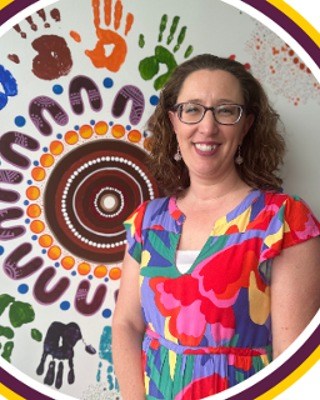
Reflections on the Positive Birth Program: Empowering Families through Storytelling
Recently, I had the opportunity to dive deep into some incredible discussions about the Positive Birth Program run by WA Country Health Services.
But before we explored the details of the program itself, we started the podcast by speaking with Dr Audrey Koay, the Executive Director of the Patient Safety and Clinical Quality Directorate at WA Health. Audrey highlighted the critical role of consumer feedback in driving healthcare safety and quality, and how feedback is a way to both celebrate what’s done well and improve where needed.
Audrey’s words brought focus to World Patient Safety Day and the importance of engaging patients and families in their healthcare. This year, one of the objectives was to improve the diagnostic process by empowering patients to actively engage with healthcare staff.
“It’s about bringing consumers, carers, families, communities, healthcare staff, and policymakers together to show their commitment to patient safety,” Audrey said.
This resonates deeply with the work her team does, and with the overall approach of the Positive Birth Program.
A Culture of Safety and Support
Audrey’s point that feedback is a tool to learn from healthcare experiences is central to how WA Health and WA Country Health Services operate. WA Health has worked hard to create a safety culture that values consumer feedback and treats it as a learning opportunity.
What stood out to me from Audrey’s words was her reflection on WA Health’s safety culture and system that recognises both consumers and staff as vital to healthcare. It’s a refreshing reminder that in the complex environment that is health, we mustn’t forget the individuals at the heart of it all.
Empowering Families in Maternity Care
Following Audrey’s insights, we shifted to the Positive Birth Program, where the role of storytelling and consumer feedback continues to shine. Katrina Jones, Bunbury Clinical Midwifery Manager, made a point that’s stayed with me: sharing and listening to stories makes us more mindful of the impact our actions have. In healthcare, it’s easy to get caught up in the day-to-day tasks. But when staff reflect on stories from families, whether good or bad, it creates a moment of pause. It’s a reminder that every action we take has an impact.
Tackling Power Imbalances in Healthcare
Another part of the conversation that I found incredibly insightful was Kasey Biggar’s thoughts on power dynamics in hospitals. The Clinical Midwifery Specialist, WACHS Parent Education Coordinator talked about how, traditionally, there’s this unspoken paradigm where health professionals hold the knowledge, and patients are seen as passive receivers. What’s brilliant about the Positive Birth Program is how it’s actively working to counteract that.
Throughout the program, families are empowered to take control of their birth experiences. As Kasey explained, "They know themselves, they know what’s important for them and their babies." This shift—where families are positioned as the authoritative voice on their own needs—changes everything. It allows women to feel more confident, more involved, and better able to advocate for themselves.
Rebalancing the Relationship
What reso
nated most was how they’re teaching families to understand that if they don’t communicate their needs, healthcare providers can’t meet them. This mutual understanding is at the heart of the program. By giving women and families the tools to articulate what they need, the program is levelling the playing field. The way I see it, it’s not about giving women power they didn’t already have—it’s about showing them that they’ve had it all along.
When families are empowered to partner with their care providers, it transforms the entire experience.
Final Thoughts
Listening to Audrey, Katrina, and Kasey, I could feel the passion behind the work they’re doing. From the safety initiatives led by Audrey’s team to the empowering approach of the Positive Birth Program, it’s clear that feedback plays a crucial role in shaping healthcare. By embracing stories and focusing on individualised care, they are helping families feel more confident, heard, and in control of the birthing experiences. It’s a powerful reminder that healthcare is about partnership—listening, learning, and evolving together.
You can learn more about the Positive Birth Program at Hypnobirthing Australia™ WACHS Antenatal Education Classes.
Reflections on the Positive Birth Program
Reflections on the Positive Birth Program https://www.careopinion.org.au/resources/blog-resources/0-images/d2bb322cbe0d4ccdac82282edd743855.png Care Opinion Australia +617 3354 4525 https://www.careopinion.org.au /content/au/logos/co-header-logo-2020-default.pngUpdate from Care Opinion Australia
Posted by Rebecca Somerville, National Manager, Care Opinion Australia, on
About: WACHS Parent Education
Thanks for your feedback.


